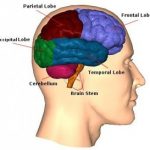News

An Alzheimer’s drug called memantine may be able to help those with binge eating disorder control the condition. Researchers have found that memantine, a neuroactive medication, can help reduce the addictive and impulsive behaviors associated with binge eating. The Boston University School of Medicine (BUSM) study that was published in Neuropsychopharmacology, found a particular area …
Read More

If you have a tendency to quickly react to negative emotions, you might be more prone to binge eat, according to new research from Michigan State University. The trait of “negative urgency” – or acting impulsively in response to uncomfortable feelings – was associated with binge eating, overeating and loss of control around food. For …
Read More

For young women, a propensity toward binge drinking may be linked to problematic or disordered eating behaviors. A study published in Alcoholism: Clinical & Experimental Research found that while binge drinking was associated with more eating issues in both males and females, girls tend to suffer more serious consequences. “For girls, binge drinking was associated …
Read More

Children who have attention deficit hyperactivity disorder or ADHD, are at a higher than average risk of developing an eating disorder. Specifically, these children are more prone to have loss of control eating syndrome (LOC-ES), much like binge eating, a condition most commonly diagnosed in adults. This information comes from a study done by Johns …
Read More

There are effective treatments available for binge eating disorder (BED), concludes the authors of a new study and meta-analysis. Therapist-led cognitive behavioral therapy or CBT, the stimulant lisdexamfetamine (Vyvanse), second-generation antidepressants (SGAs) and topiramate (multiple brands) help reduce incidents of binge eating and related psychopathology, the review discovered. The Study Since 2013, the American Psychiatric …
Read More

In a new study from Drexel University, females with an apple-shaped body, who have a higher percentage of stored fat in their trunks and abdominal area, could be at a greater risk for developing an eating disorder. Researchers also discovered that women with greater fat stores in these areas reported feeling less satisfied with their …
Read More

According to a new study, women with an apple-shaped body may be at a particular higher risk for developing a binge eating disorder, during which they experience a loss of control over their eating habits. Women with an apple-shaped body tend to store more fat in their trunk and abdominal regions. This new study marks …
Read More

A new study published in the journal, “Obesity,” shows that the brain activity in obese patients diagnosed with Binge Eating Disorder (BED) is different than that in obese subjects who do not have BED. In the study, funded in part by the National Institutes of Health, 10 obese subjects with BED and 8 obese subjects …
Read More

A new study involving more than 440 parents and their preschool aged children offers insight into why some parents who binge eat, may try to restrict their children’s food intake. When a parent restricts a child’s food intake, it places the child at a higher risk of developing unhealthy eating habits and weight issues. The …
Read More

The same mechanisms that affect impulse control in children with attention deficit hyperactivity disorder (ADHD) could also predispose them to binge eating, according to new research published in the International Journal of Eating Disorders. The study found that, since similar biological mechanisms may be at work in the two conditions, treatments for ADHD may help …
Read More
 Eating Disorder Self Test. Take the EAT-26 self test to see if you might have eating disorder symptoms that might require professional evaluation. All answers are confidential.
Eating Disorder Self Test. Take the EAT-26 self test to see if you might have eating disorder symptoms that might require professional evaluation. All answers are confidential.
Find a Treatment Facility Near You
Click on a state below to find eating disorder treatment options that could be right for you.









 Eating Disorder Self Test. Take the EAT-26 self test to see if you might have eating disorder symptoms that might require professional evaluation. All answers are confidential.
Eating Disorder Self Test. Take the EAT-26 self test to see if you might have eating disorder symptoms that might require professional evaluation. All answers are confidential.